Conflict
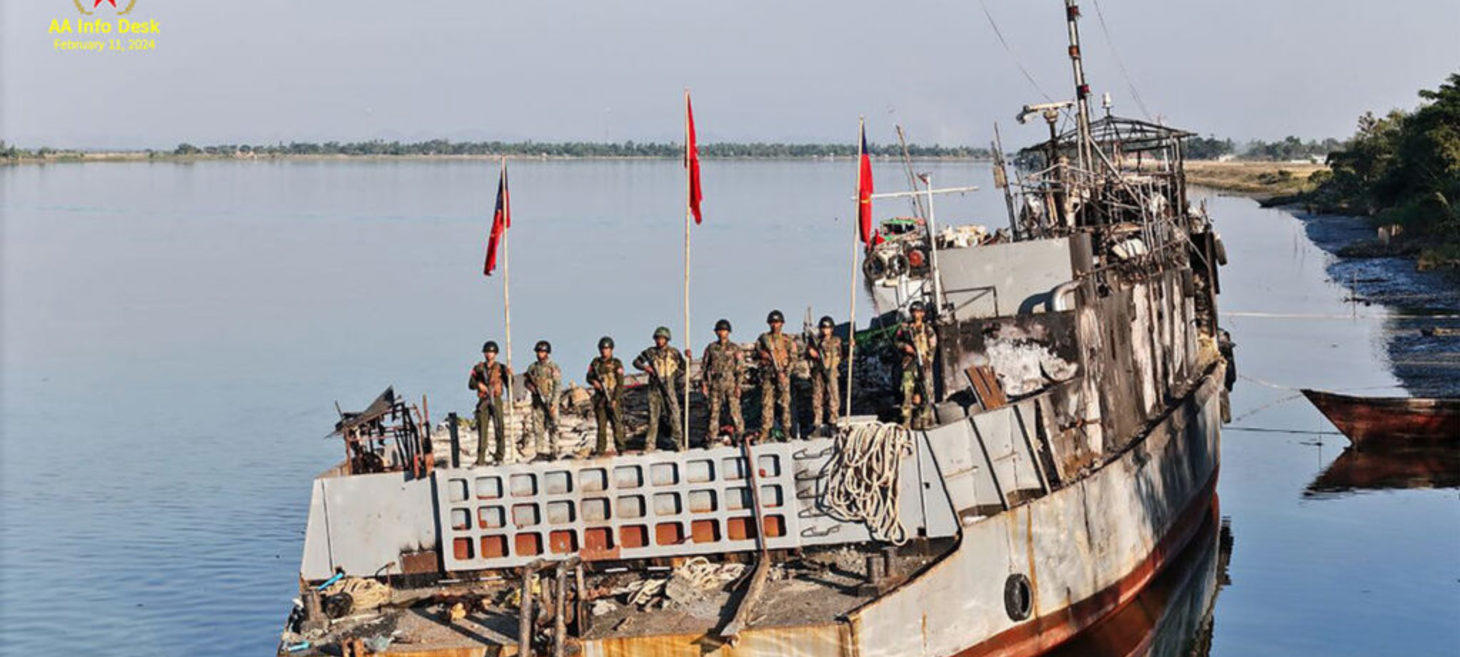
Myanmar Junta on Brink in Rakhine as AA Advances Into Southernmost Township
The Arakan Army (AA) expanded its offensive in Rakhine State to the southernmost point, attacking junta troops in Gwa Township near Ayeyarwady Region. The assault targeted a checkpoint in Chinkwin village, leading to the retreat of approximately 70 junta soldiers and militias. In response to the AA's advance, regime forces had previously destroyed a bridge near the checkpoint twice in July. Following the AA's successful attack, junta troops withdrew further south, prompting retaliatory airstrikes by the regime. Additionally, the AA launched rocket attacks on a hilltop monastery in Kyeintali town, reportedly causing significant casualties among junta forces. The escalation in violence has resulted in civilian displacement and fears among the local population, as the regime fortifies strategic locations and restricts movement within the area.
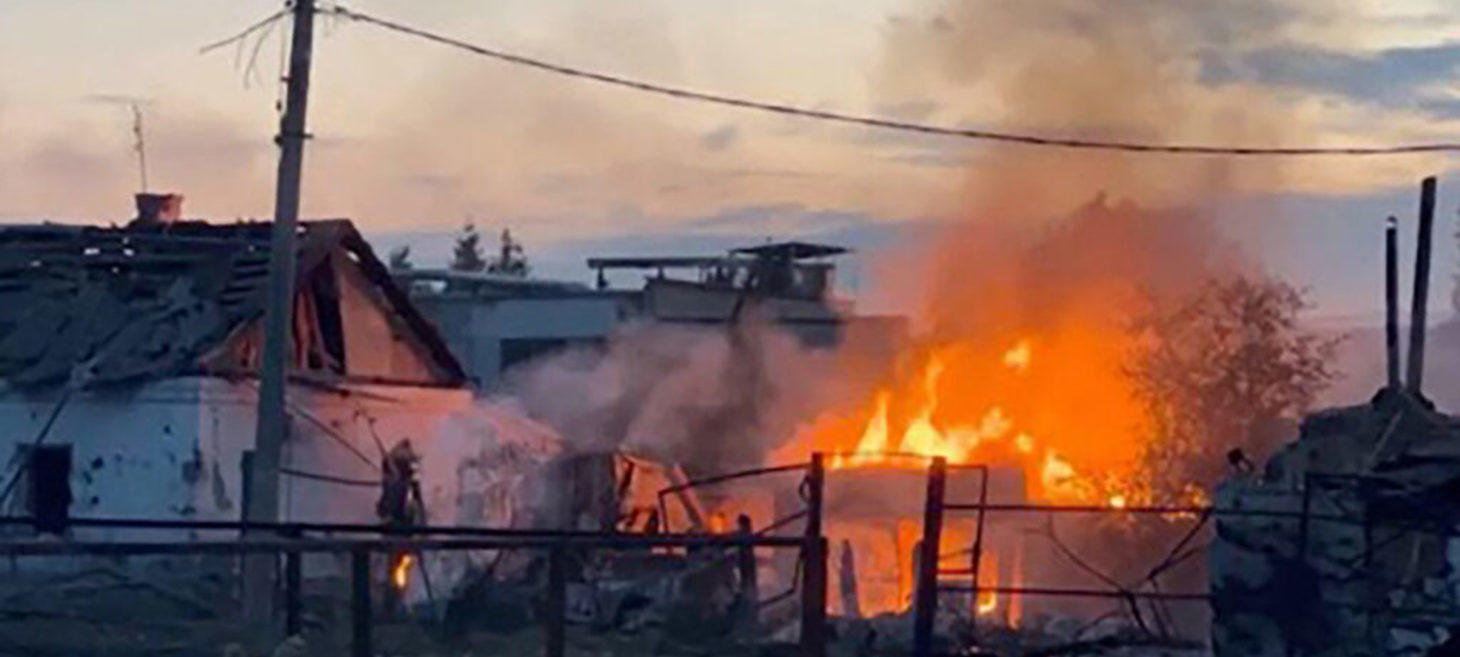
PDF Groups Seize Guard Posts for Chinese Pipeline Facilities in Myanmar’s Mandalay Region
People's Defense Force (PDF) groups, operating under the civilian National Unity Government, have successfully seized at least two junta-guarded off-take stations for the Chinese oil and gas pipelines in Mandalay Region, following coordinated attacks on regime targets in Myingyan District. These actions, part of a broader offensive named "Myingyan District Special Operations," targeted key infrastructure and regime positions, including a textile mill and pro-junta militia locations in Taungtha and Natogyi towns. The attacks resulted in significant regime casualties and the temporary seizure of major junta positions, despite subsequent airstrikes and reinforcement efforts by the military junta. This escalation highlights the growing challenge to the regime's control over strategic assets and its ability to protect critical infrastructure projects backed by foreign investors, particularly China.
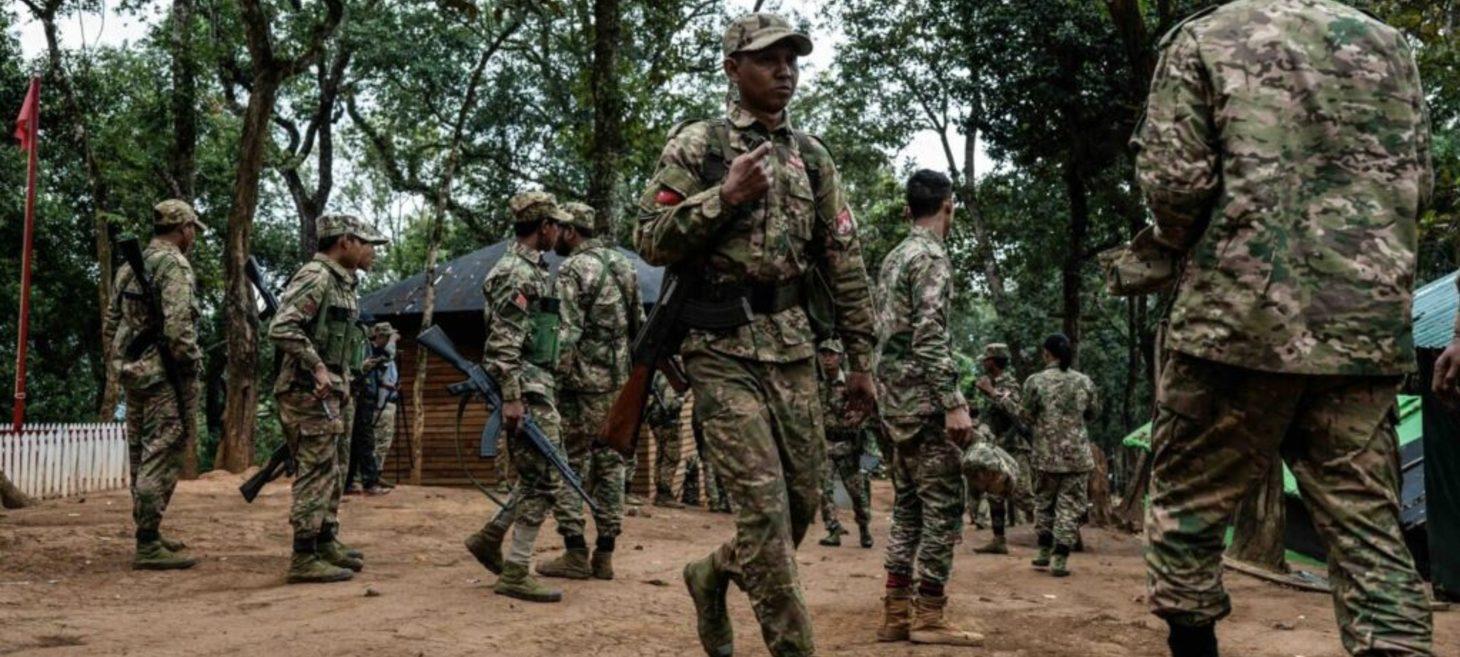
Emboldened resistance initiates offensive targeting junta bases in Myanmar heartland
Over the weekend, the People's Defense Forces (PDF), directed by the National Unity Government, intensified their offensive against the Myanmar military by targeting army bases in Myingyan, Natogyi, and Taungtha townships southwest of Mandalay. This strategic campaign aims to capitalize on the junta's recent losses, including the significant defeat at Lashio, a critical economic and strategic hub in northern Shan State. The PDF's operations included assaults on a police station, various military bases, and a power substation, signaling a robust push toward weakening the military's control. These actions have brought the resistance forces closer to Naypyitaw, indicating a shrinking gap in military capabilities between the PDF and the junta. In response to the escalating conflict, the regime has initiated emergency plans for the relocation of civil service staff in the Mandalay Region, reflecting the growing instability and the government's struggle to maintain control. The local population remains largely confined to their homes due to ongoing airstrikes and fears of further violence, highlighting the severe impact of the conflict on civilians.
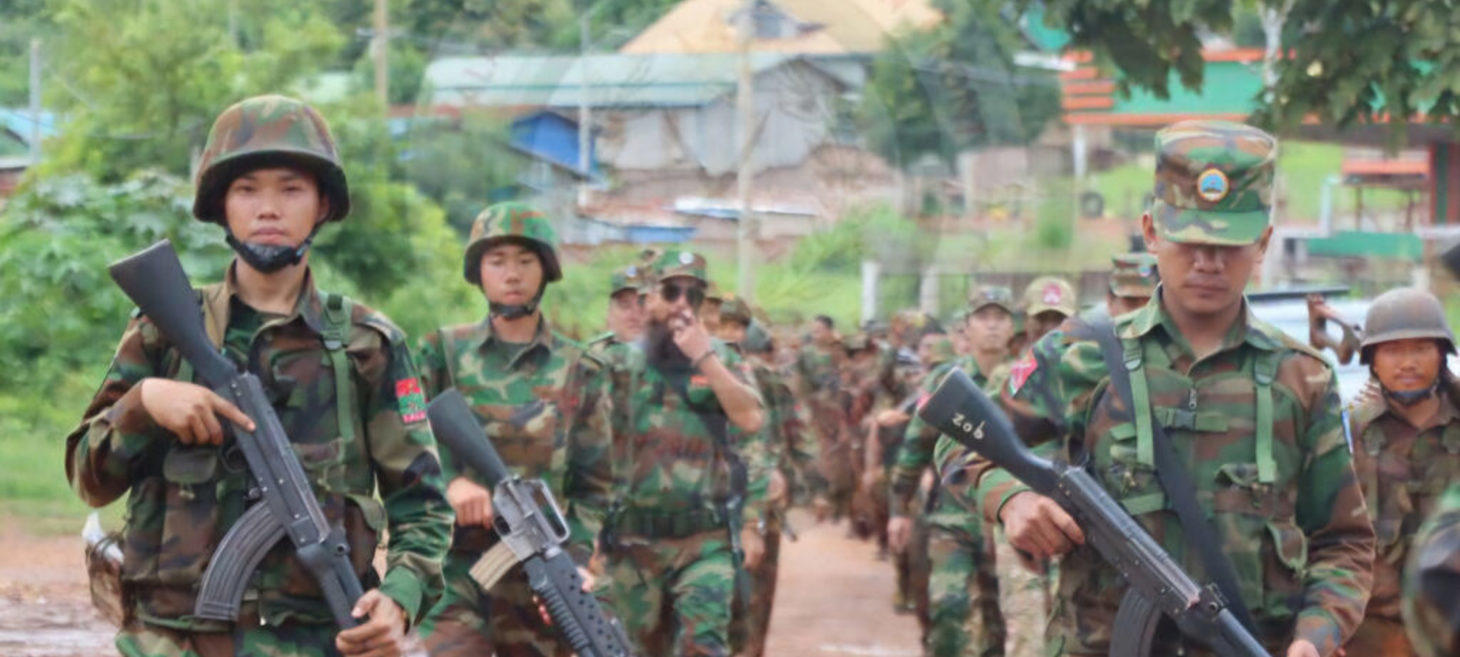
Myanmar Junta Troops ‘Cornered’ in Two Northern Shan Townships
Intense clashes continue in northern Shan State, Myanmar, as the Ta'ang National Liberation Army (TNLA) and its allies engage in heavy fighting with junta troops in Nawnghkio and Hsipaw townships. The conflict escalated with the TNLA, part of the ethnic Brotherhood Alliance, reporting that a junta transport plane dropped 20 bombs in Nawnghkio on Sunday. The fighting, which persisted into Monday, is part of the TNLA's broader offensive, Phase 2 of Operation 1027, aimed at seizing control of strategic locations. Since the operation's resumption in late June, following the collapse of a China-brokered ceasefire, the TNLA and its allies have captured several key towns, including Nawnghkio, Mongmit, Kyaukme, and Hsipaw, as well as Mogoke in Mandalay Region. The TNLA also took control of Hsipaw's prison, releasing 109 inmates, including 29 political prisoners. This ongoing conflict has led to significant displacement, with many Hsipaw residents fleeing to areas under TNLA control.
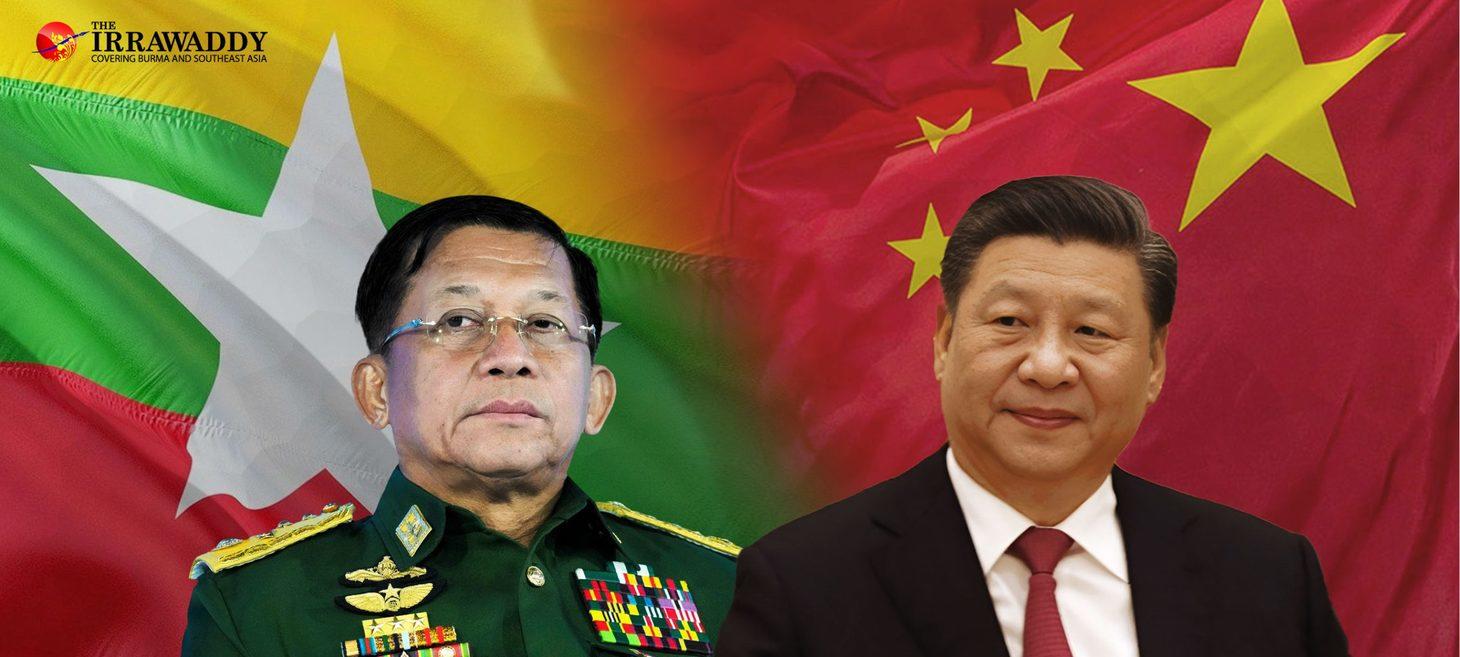
Operation 1027 rapidly changing Myanmar’s security landscape - Asia Times
Since the military coup in February 2021, Myanmar has been embroiled in severe political, social, economic, and armed conflicts. The National Unity Government (NUG) and its military arm, the People’s Defense Forces (PDFs), along with various ethnic armed organizations (EAOs), have been actively resisting the oppressive military junta. The Three Brotherhood Alliance (3BHA), comprising the MNDAA, TNLA, and AA, launched Operation 1027 in October 2023, significantly altering the security landscape by capturing key territories and economic hubs in northern Shan State. This operation, supported by China, has weakened the Myanmar military, leading to manpower shortages, defections, and a reliance on forced conscription, exacerbating the country’s economic struggles and increasing child labor. The 3BHA's military successes, including the recent attempts to capture Lashio and control over significant territories, underscore the junta’s diminishing control. China’s shifting support towards the EAOs, partly to combat cybercrime affecting Chinese nationals, aligns with its broader geostrategic interests in the region, particularly the China-Myanmar Economic Corridor. The ongoing conflict, marked by the junta’s severe military setbacks and the international community's call for more proactive engagement and support for the NUG and pro-democracy groups, highlights the critical need for a coordinated international response to restore peace and democracy in Myanmar.
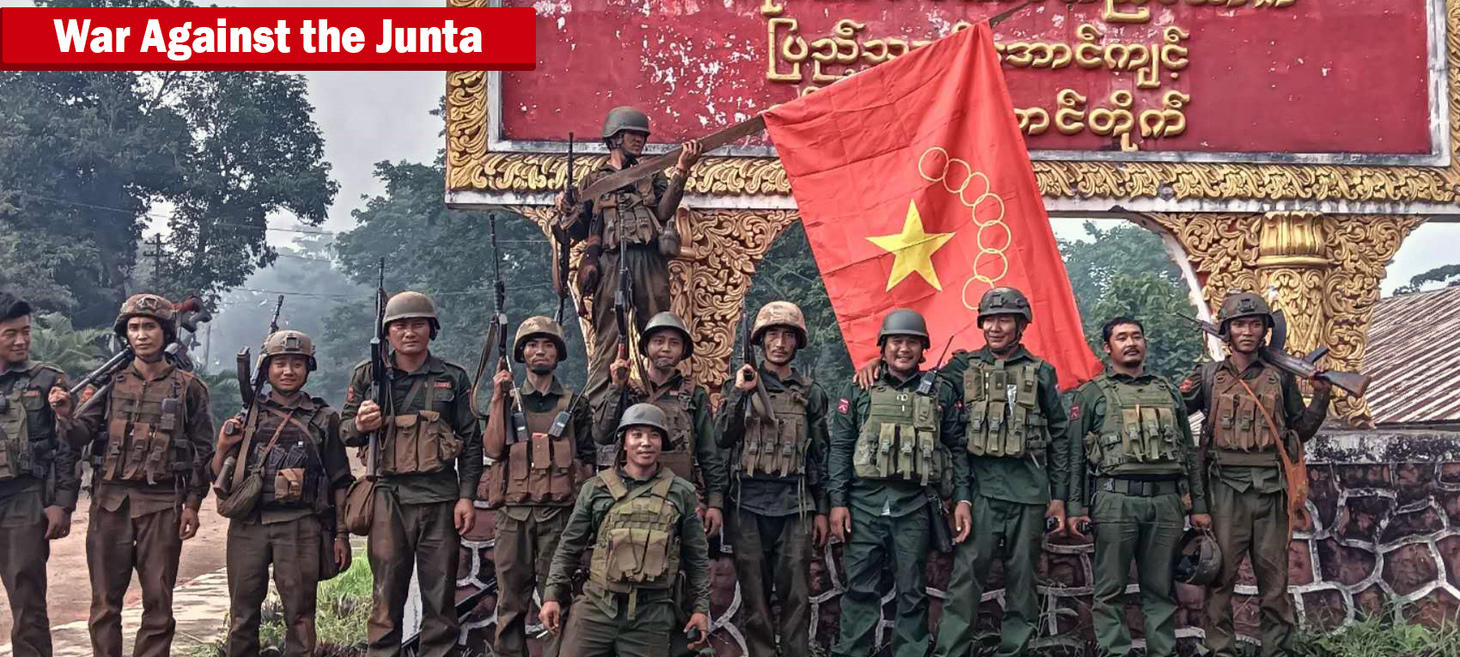
Myanmar’s Brotherhood Alliance Calls on Northeast Command Chief to Surrender
The Brotherhood Alliance, an ethnic armed coalition in Myanmar, has directly called on Brigadier-General Soe Hlaing, the chief of the Northeastern Command, to surrender along with his forces. This request comes after the Myanmar National Democratic Alliance Army (MNDAA) and allied groups captured the Northeastern Command headquarters in Lashio on August 3, 2024. Soe Hlaing, who had replaced Major-General Soe Tint just last month, is currently directing operations from Muse, a significant trade hub near the Chinese border. The Brotherhood Alliance's call aims to prevent further loss of life and property in Muse, one of the few remaining junta strongholds in northern Shan State. This development is part of the ongoing Operation 1027 offensive, which has seen significant territorial gains by the alliance, including the capture of key towns in northern Shan and Mandalay Regions.
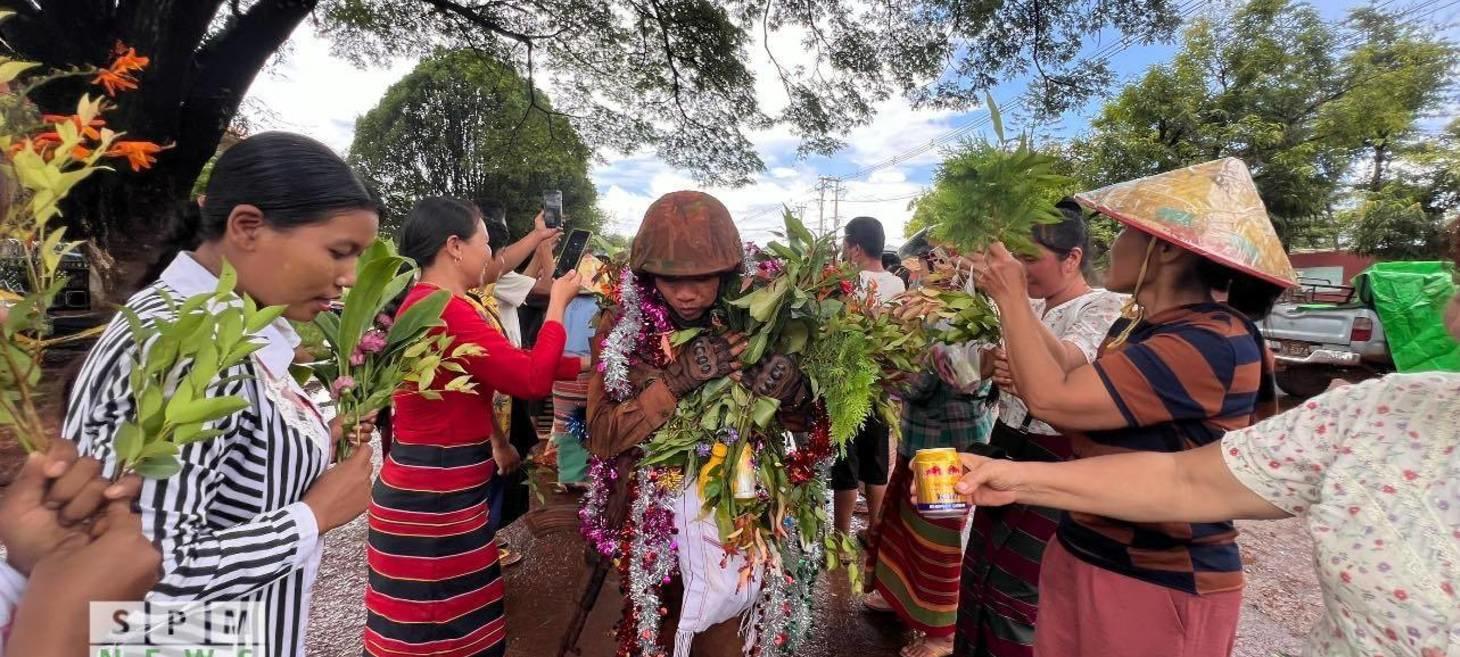
Junta launches airstrikes to defend Kyaukme Town bases in Shan State
In northern Shan State, Myanmar, the junta has intensified its military efforts to retain control over Kyaukme Town by launching airstrikes aimed at defending its remaining bases, specifically the No. 1 Tactical Operations Headquarters and Infantry Battalion (IB) 501 and 502. These airstrikes, which occurred on August 3 and 4, 2024, have resulted in significant civilian casualties and damage to residential areas, including the destruction of homes near the Padamyar Pagoda and a local golf course. Additionally, the town has experienced logistical support from Y-12 transport aircraft, which made 22 ammunition drops to the besieged bases. The ongoing conflict has severely impacted the daily lives of Kyaukme residents, leaving many unable to safely leave or enter the town, with reports of unretrieved corpses decomposing in the streets, creating a dire humanitarian situation.
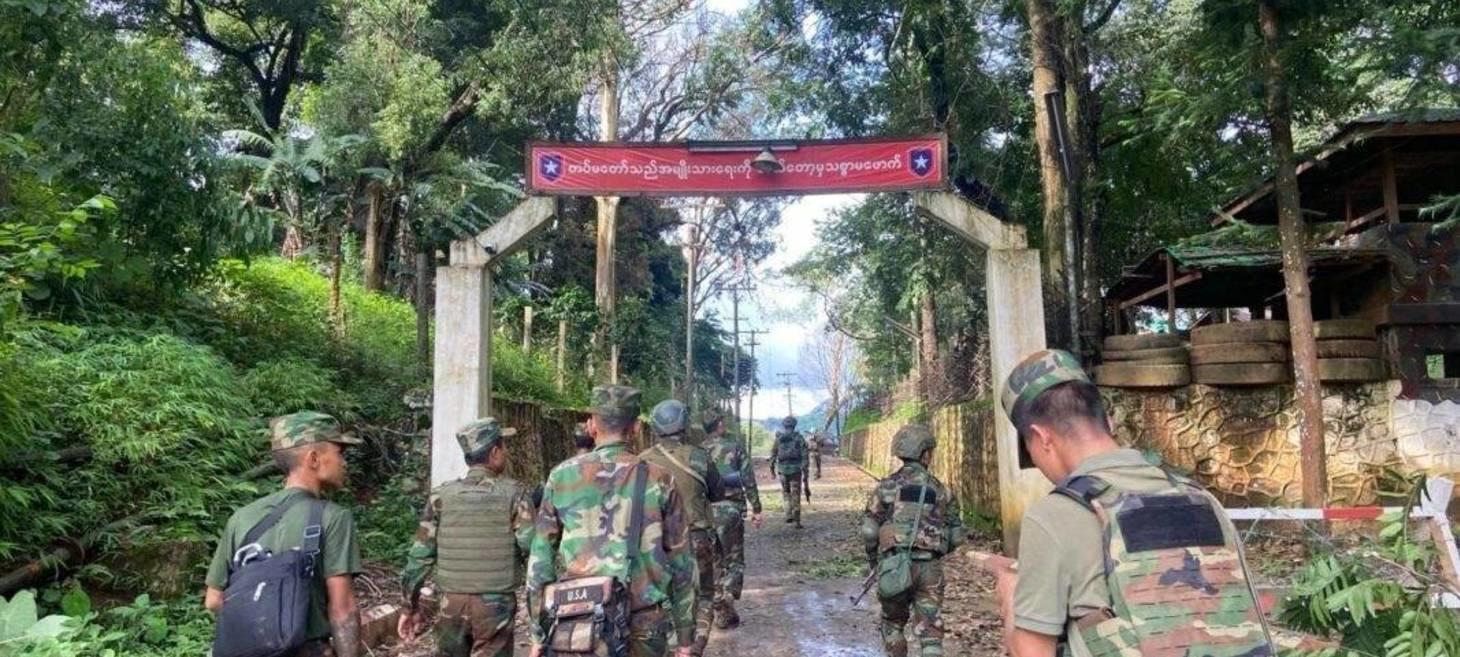
Junta Brigadier General faces military court for Mongkut retreat
On August 6, 2024, Junta Brigadier General Aung Lwin faced a military court for retreating from Mongkut (Mogok) Township, allowing it to fall into the hands of the Ta’ang National Liberation Army (TNLA) and its allies on July 24, 2024. This retreat followed intense fighting that began on June 25, during which the TNLA and its allies captured all three of the junta's military bases in the township, which are under the Central Region Military Command. The military court charged Brigadier General Aung Lwin with disobeying orders, citing his return from Mongkut due to back pain and leaving behind his subordinate soldiers as acts of selfishness. The battle for Mongkut was marked by significant military engagement, including 21 airstrikes from jet fighters, nine from Y-12 utility aircraft, 78 heavy artillery rounds, and 18 rocket-propelled grenades.
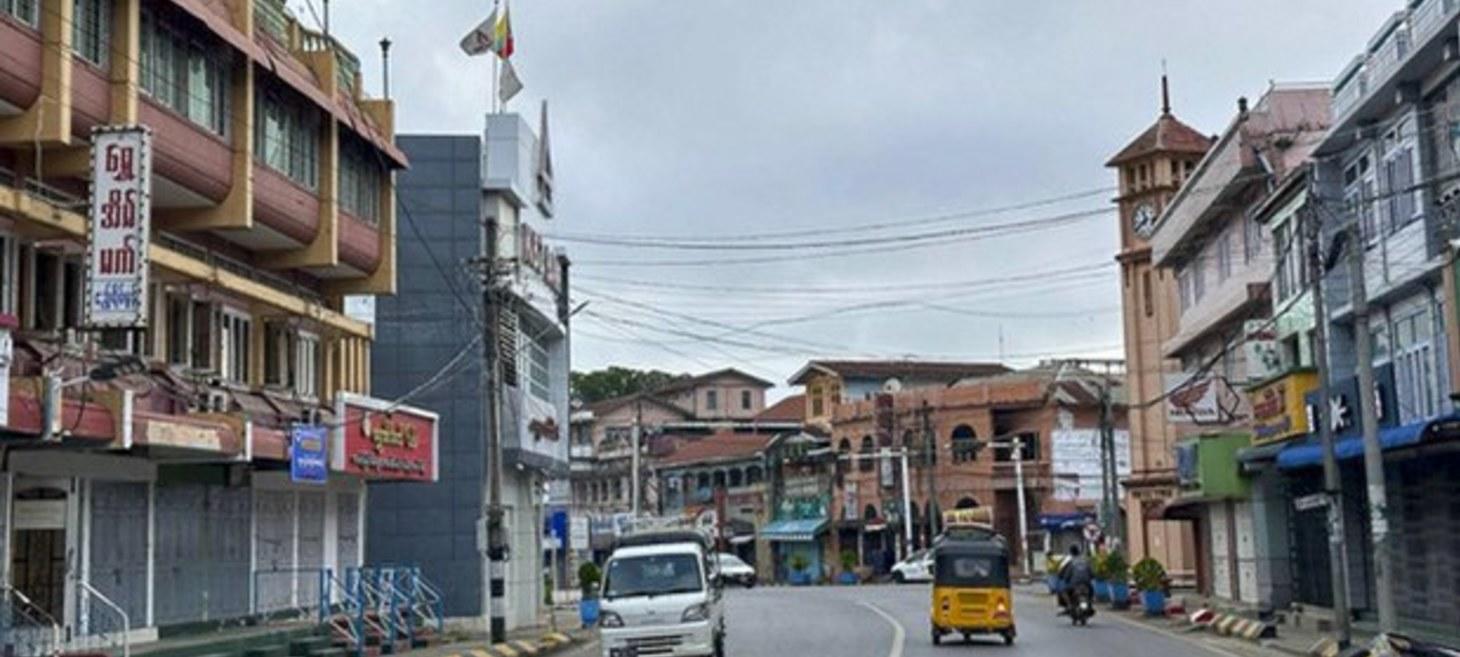
Residents flee ahead of expected fight for Myanmar military academy town
Anticipation of a battle in Pyin Oo Lwin, a central Myanmar hill town and home to the junta’s top military academy, has prompted the evacuation of civil servants' and military soldiers' families to safer locations such as Mandalay and Naypyidaw. This move follows the Ta’ang National Liberation Army (TNLA) and allied anti-junta militias' recent victories, including the capture of key junta positions in nearby towns along the main highway to China. The local community is on high alert, with merchants emptying their shelves and junta troops establishing checkpoints to restrict movement and supplies. Despite these preparations, a military analyst suggested that an attack on Pyin Oo Lwin might be delayed due to the resistance forces needing time to regroup after recent engagements. Meanwhile, the TNLA, along with the Mandalay People’s Defense Force and other members of the Three Brotherhood Alliance, continues to advance, having recently resumed hostilities after a ceasefire, signaling ongoing and intensifying conflict in the region.
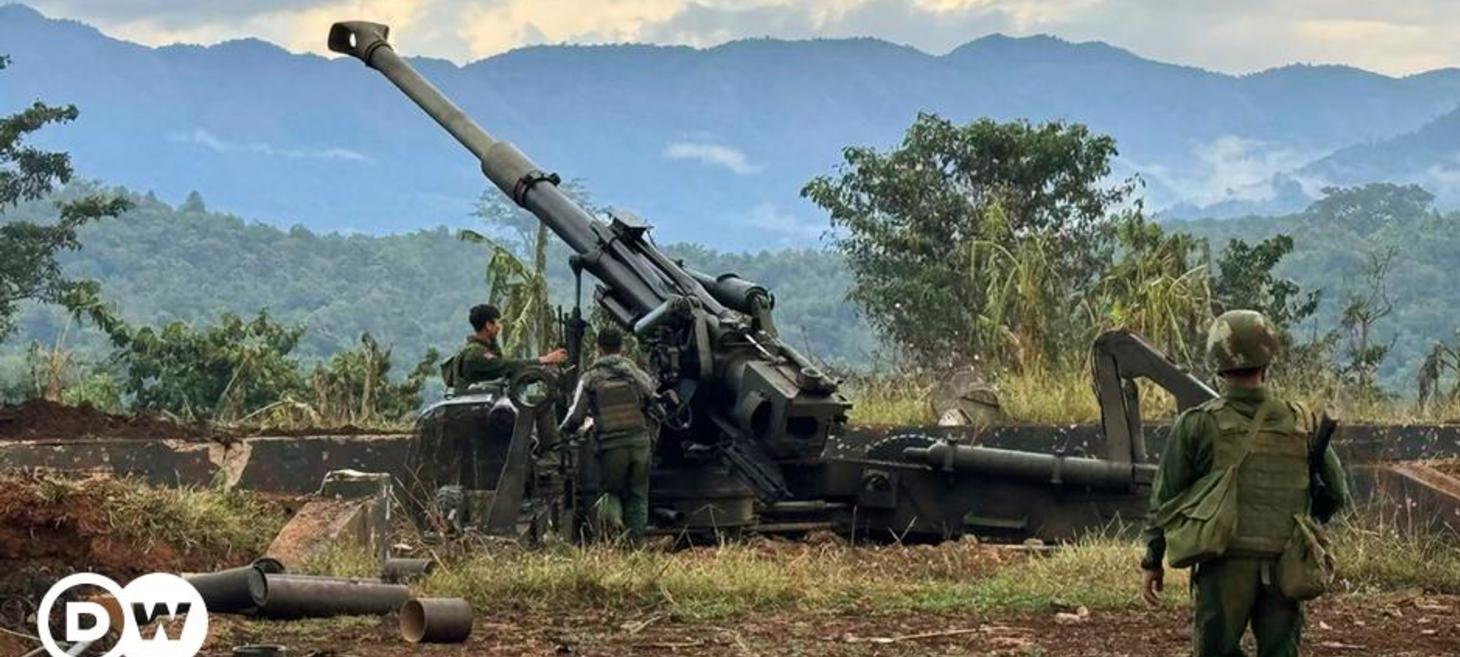
Myanmar junta on back foot as ethnic rebels capture key base - DW (English)
The Myanmar military has suffered a significant defeat as the Myanmar National Democratic Alliance Army (MNDAA), part of the ethnic rebel coalition, captured the strategically crucial Northeast Command base in Lashio, Shan State. This loss is seen as a major setback for the junta, particularly since the military had recently bolstered the base with 3,000 troops, only to see it fall within a month, resulting in over 1,000 soldiers surrendering, including high-ranking officials. The capture of Lashio, a major trading town and the largest city seized by the opposition to date, marks a critical point in the ongoing conflict, highlighting the increasing effectiveness and coordination of the opposition forces. This event underscores the junta's weakening grip on power amid a broader civil war that has seen significant territorial gains by resistance forces, raising questions about the potential spread of conflict to other junta strongholds and the future stability of the region.
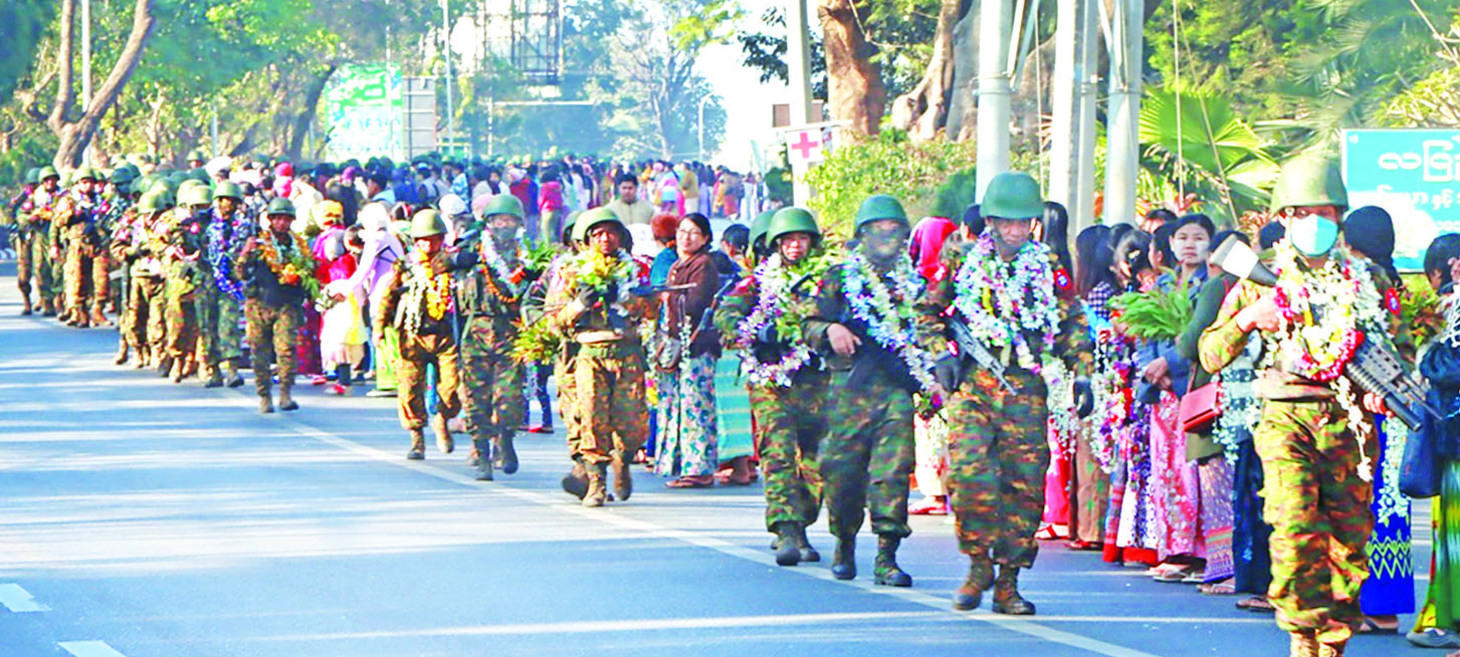
Civilians fleeing Pyin Oo Lwin as Myanmar military prepares defences
As the Myanmar military strategically positioned troops at the University of Technology in Yatanarpon Cyber City near Pyin Oo Lwin, Mandalay Region, local civilians have begun fleeing the area due to fears of impending conflict. The university, situated on a hill between Pyin Sar and Thone Taung villages, offers a tactical vantage point for military operations, potentially serving as a base for helicopter landings and artillery shelling. This military occupation led to the evacuation of university staff and students, with many returning to their hometowns. The broader region has seen increased military activity, with the Ta’ang National Liberation Army capturing nearby territories and the National Unity Government's forces engaging in nearby conflicts. In response, the junta has escalated security measures, setting up checkpoints and clearing areas around strategic locations, prompting further civilian displacement. Residents, including soldiers' families, are relocating to safer areas like Naypyitaw, while others remain due to logistical challenges, all amidst a growing atmosphere of fear and uncertainty in Pyin Oo Lwin.
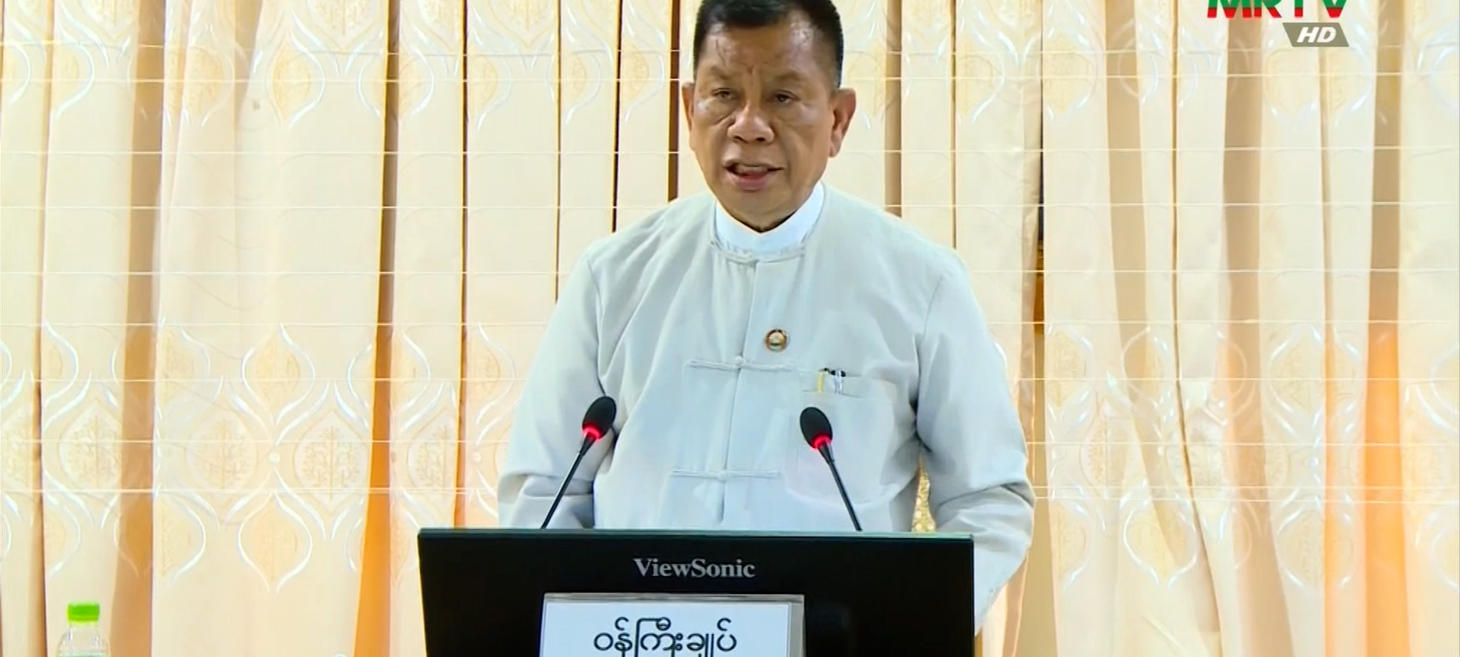
Myanmar resistance forces seize gold mine owned by junta crony
The Mandalay People’s Defence Force (MDY-PDF) successfully captured the Phayaung Taung gold mine, a joint venture between Maung Ko’s Myanmar Golden Point Family Co., Ltd. and the military-controlled Mining Enterprise No. 2, located near Mandalay in Patheingyi Township. The takeover followed a strategic assault involving drone bombings on a nearby army outpost, leading to the retreat of junta soldiers guarding the site. This action prompted retaliatory airstrikes by the regime on the village of Phayaung Taung, resulting in civilian casualties. Despite the ongoing conflict, about 100 mine employees remain trapped at the site, with efforts underway to evacuate them. The mine, a significant source of revenue for the junta, has been inactive due to construction and contract negotiations but is prepared to resume operations pending stabilization of the region. Maung Ko, a key figure in the region and target of US sanctions, has extensive involvement in the gold mining industry and other business sectors in Myanmar.
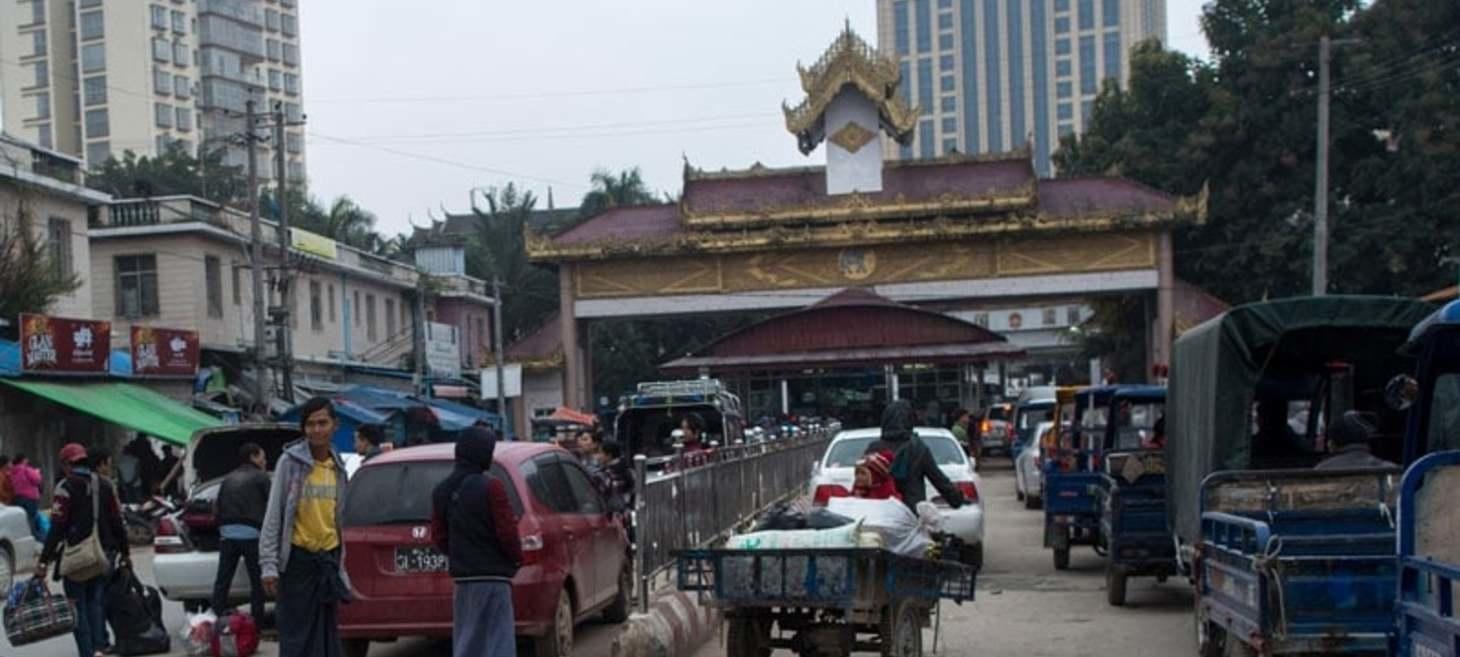
Myanmar junta officers flee to China as Muse braces for conflict
Following the Myanmar National Democratic Alliance Army's (MNDAA) takeover of the Northeastern Military Command in Lashio, Senior Myanmar junta officers, including Major-General Soe Hlaing, have been unable to assume their posts and have instead set up operations across the border in Ruili and Kyalgaung, China. Major-General Soe Hlaing, appointed on July 18 to replace Major-General Soe Tint, missed his opportunity to take up his new role due to the MNDAA's swift control over the command on August 3. As a result, junta officers are commuting from China to Muse for their duties, utilizing border passes that allow a week's stay. The situation in Muse remains tense but stable, with junta forces and various militia groups stationed there amidst ongoing threats from the Three Brotherhood Alliance and allied resistance forces, who have surrounded the town and are negotiating for further surrenders. The strategic positioning of Muse near the Chinese border adds complexity, as it offers the junta potential retreat options to China amidst escalating conflicts and the inability to send reinforcements.
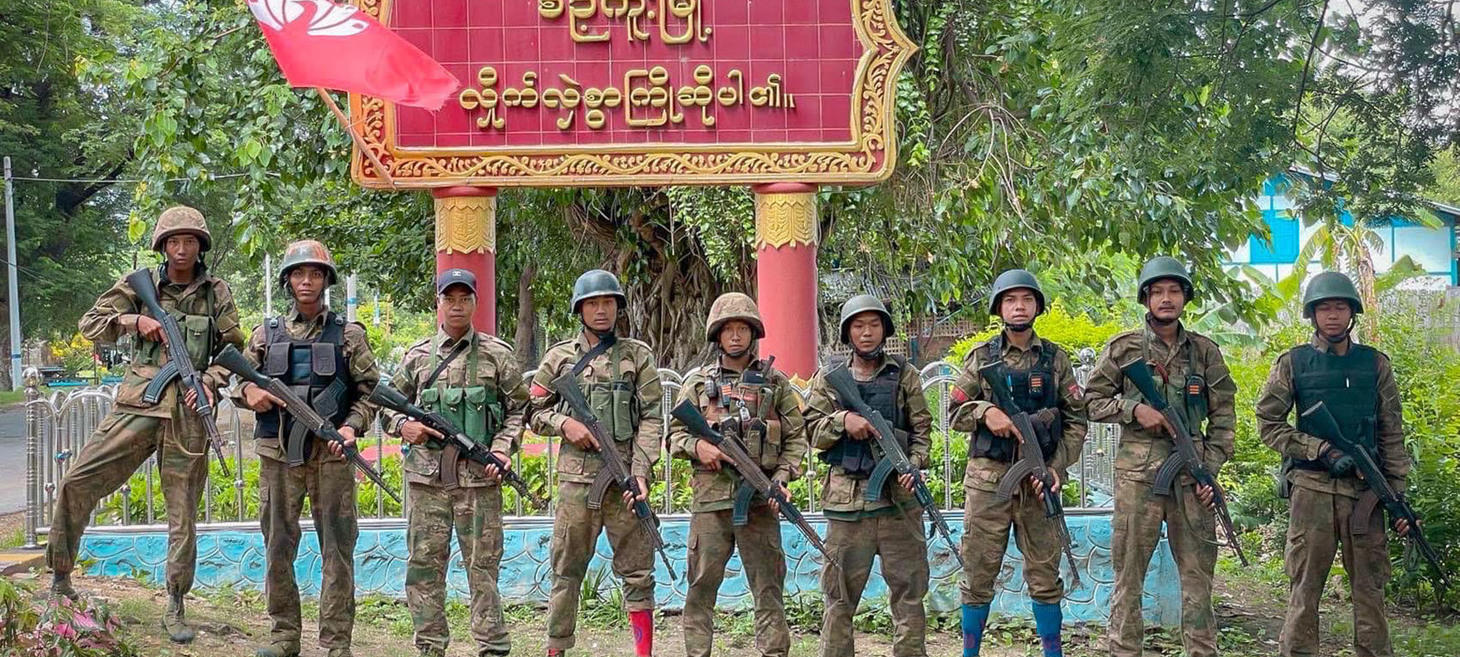
Junta Controls Fewer Than 100 of Myanmar’s 350 Towns: NUG
The military regime in Myanmar currently controls fewer than 100 out of the country's 350 towns, according to the Defense Minister of the civilian National Unity Government (NUG), U Yee Mon. This significant reduction in controlled territory for the junta comes amid ongoing conflicts and territorial gains by anti-regime groups. The situation highlights the shifting dynamics of power within Myanmar, with the NUG categorizing towns into those completely captured by anti-regime groups, those surrounded, contested areas, and remaining regime-controlled territories. Despite initial claims of broader control, the junta's grip has weakened significantly, especially in ethnic states like northern Shan State and Rakhine State, and more recently in Mandalay Region. These developments underscore the challenges faced by the military regime in maintaining control amidst widespread opposition and the strategic offensives by various armed groups aligned against it.
Conscription

Junta aligned militia forcibly recruiting in Chipwi District, Kachin State
In northeastern Kachin State's Chipwi District, the junta-aligned Chipwi-Pang War militia group, under the leadership of U Bum Lang, is intensifying its forced recruitment efforts, targeting young people in Chipwi and Pang War towns. The militia has been abducting youths from local mines and at security checkpoints, with recent incidents including the forced conscription of six youths from a mine and four others at a checkpoint. Additionally, over 20 youths were abducted from another mine on August 5. This escalation in forced recruitment is reportedly due to the junta's dwindling manpower following significant battlefield losses. The abducted individuals are transported to Myitkyina, the state capital, where they are likely trained and prepared for frontline deployment. The situation is exacerbated by restricted communication, with phone and internet connections largely down across Kachin State. However, some networks remain operational in specific areas to facilitate business operations that support the junta. This aggressive recruitment drive follows territorial gains by the Kachin Independence Army (KIA) and allied forces, prompting the junta and its militias to bolster their ranks forcibly.

Junta conscription drive in Kyaikto Township, Mon State
In Kyaikto Town, Myanmar, junta forces have intensified their efforts to enforce conscription laws, actively searching for young men listed for military service across the town's six downtown wards. Since the announcement of the conscription law in February 2024, soldiers and police have conducted house-to-house searches, using detailed lists containing personal information to locate individuals. Despite the extensive data, the large number of potential conscripts and incomplete address details have made it challenging for authorities to capture everyone, prompting many youths to temporarily flee their homes. Local reports indicate that the junta is determined to abduct young men for service, irrespective of their presence on the conscription lists, especially as the recruitment numbers from Mon State have fallen short of expectations. Those unable to evade the draft are sent to Military Advanced Training Depot No. 4 in Thanbyuzayat Township for training, with recent images released by the junta showing about 150 new conscripts from Mon State participating in a ceremony marking the start of their military training.
Crime & Narcotics

Crime rates rise in Myawaddy
Myawaddy, a border town with a diverse ethnic population, is experiencing high levels of crime, including frequent disappearances and robberies. Recently, a married couple who sold cars and at least two delivery drivers have gone missing, with locals noting that such incidents often go unreported and unresolved. Additionally, a woman's beaten body was found near the town, adding to the concerns about safety. Residents describe a significant lack of security, with burglaries occurring even during the day and thieves sometimes armed with knives, posing a direct threat to those who resist. The town has also seen a rise in casinos, gambling, illegal money lending, and prostitution. Despite these issues, the local authorities, including the Karen Border Guard Force and the Democratic Karen Buddhist Army, along with junta troops, have not provided any official statements or solutions to these crimes. The Karen BGF has deployed 2,000 personnel to enhance security and prevent conflicts, but the effectiveness of these measures remains unclear.
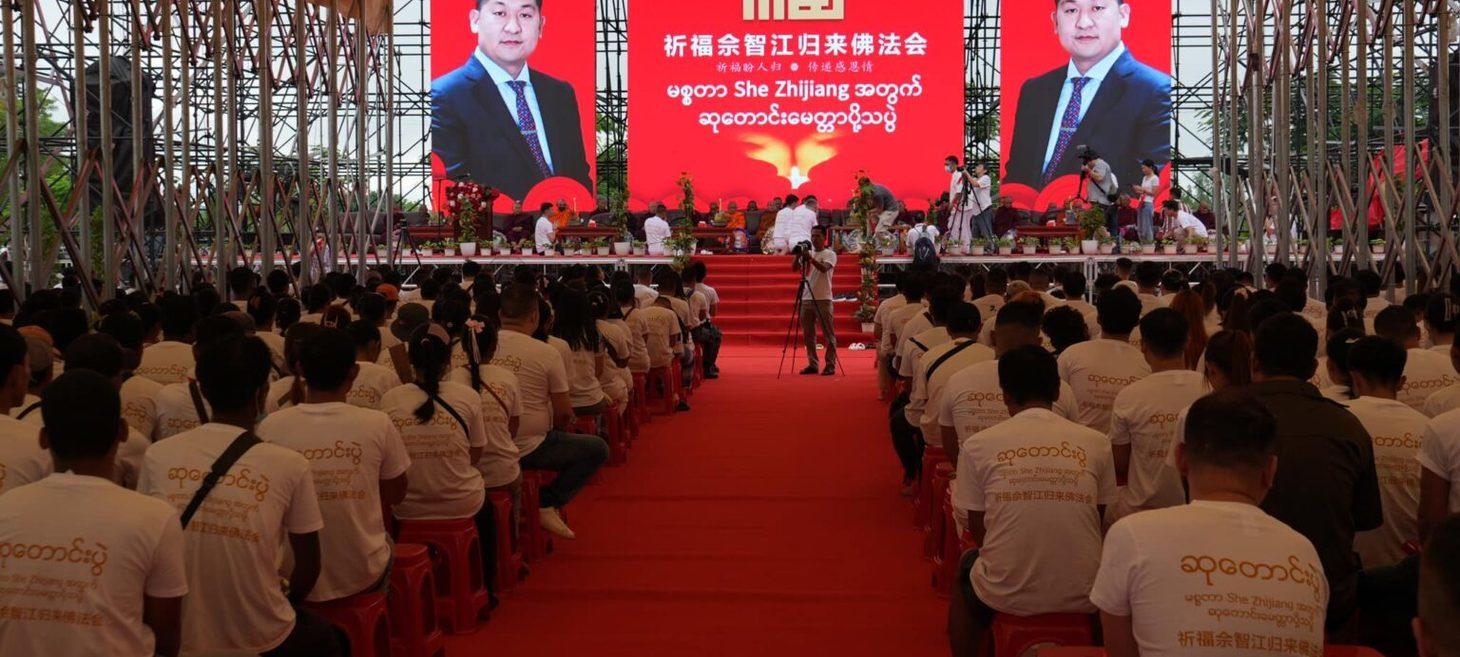
Junta-allied Karen border guard force holds prayer ceremony for alleged scam kingpin
In a notable event, the Karen Border Guard Force (BGF), allied with Myanmar's military junta, organized a prayer ceremony for She Zhijiang, a Chinese-Cambodian businessman accused of running extensive online fraud and human trafficking operations. Held in Myawaddy Township, Karen State, the ceremony saw hundreds of monks and locals gather to pray for She Zhijiang's good health. He is currently in Thai custody and facing extradition to China. The event, led by BGF chief Col. Saw Chit Thu, highlighted the complex ties between the BGF, criminal activities, and the broader geopolitical landscape in Myanmar. Despite allegations against the BGF and its leaders for profiting from illegal activities, including gambling and scams, the group has denied these accusations, attributing them to fabricated stories by opponents.
Economy

Myanmar Gas-Fired Plant Shut Down Amid Civil Unrest - POWER magazine
Due to ongoing civil unrest and fighting in Myanmar, Singapore-based Sembcorp Industries has temporarily halted operations at its 225-MW Sembcorp Myingyan natural gas-fired power plant in Mandalay's Myingyan township. The decision, announced on August 12, comes amidst anti-government protests and an armed rebellion, prompting the military government to extend the state of emergency through the end of the year. Sembcorp, a subsidiary of the government-owned Temasek, cited safety concerns for its employees as the primary reason for the suspension, with plans to resume operations once conditions stabilize. Additionally, Japan’s Unicharm Corp., a financial supporter of the plant, has ceased further capital investments due to restrictive business conditions and foreign currency remittance issues in Myanmar, where political and economic turmoil continues following the 2021 military coup.
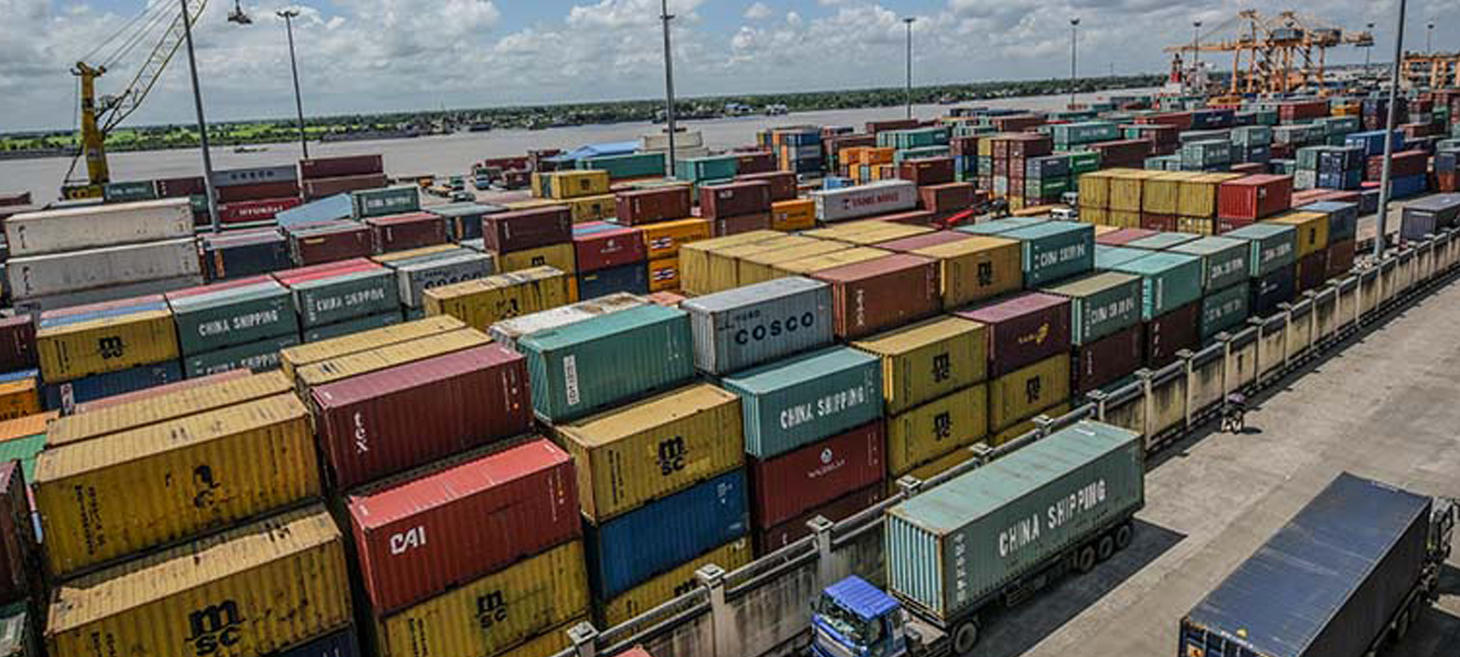
Myanmar Central Bank’s Latest Forex Conversion Move Fails to Impress Traders
The Central Bank of Myanmar's recent decision to lower the mandatory conversion rate of foreign currency export earnings from 35% to 25% has not been well received by traders. This policy adjustment, part of a series of reductions from an initial 65% set in August 2022, still forces exporters to convert a significant portion of their earnings at below-market rates, which traders find burdensome. Despite the reduction, the sentiment among exporters remains negative, with comparisons made to providing inadequate relief that does not address the core issues of forced conversion. This ongoing policy has led to significant discontent among business owners, with some facing revocation of export licenses for non-compliance, further complicating the economic landscape in Myanmar amidst political instability and economic challenges following the military coup.
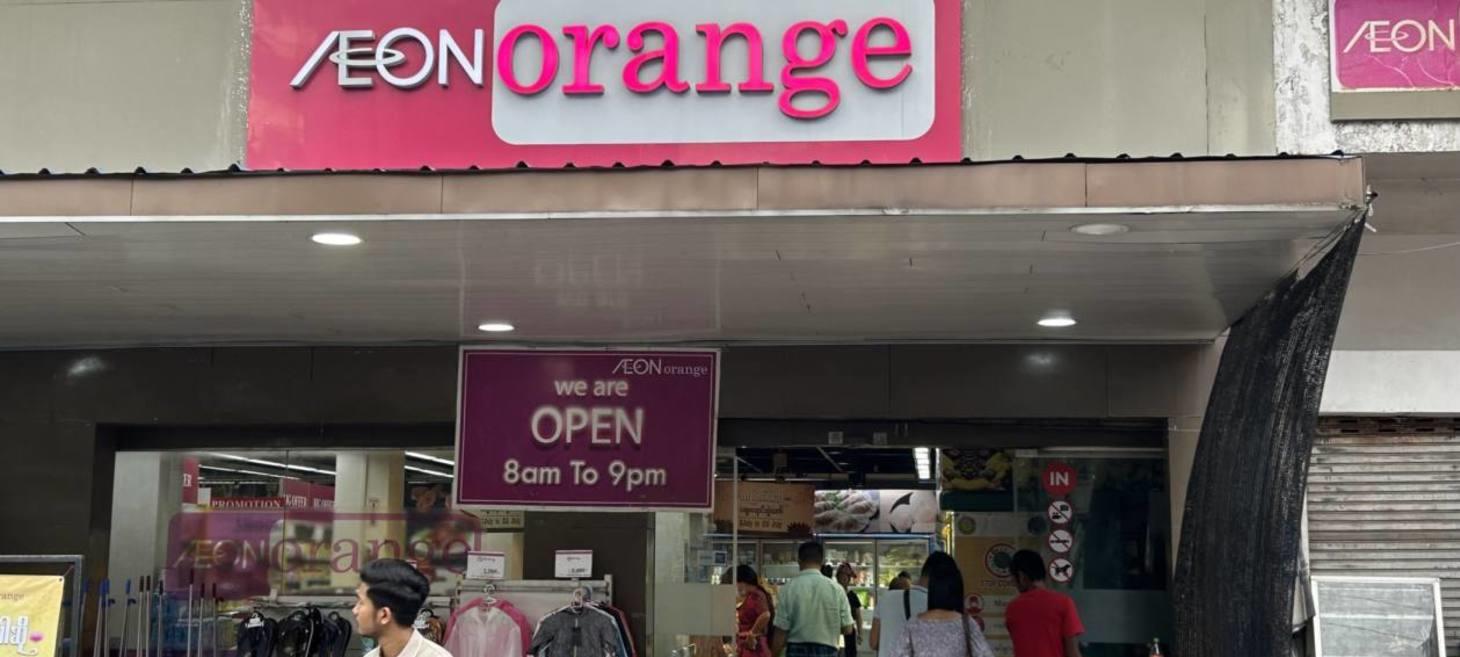
Myanmar sentences Aeon executive to 1 year in prison: source
A Myanmar military court sentenced Hiroshi Kasamatsu, an executive from Japanese retailer Aeon, to one year in prison for selling rice at inflated prices. Kasamatsu, responsible for price setting at Aeon Orange, was detained in late June, indicted in mid-July, and could have faced up to three years in prison. Currently held in Yangon, he has been in good health and has met several times with Ichiro Maruyama, the Japanese ambassador to Myanmar. This sentencing comes as Tokyo continues to lobby for his release, drawing parallels to the case of filmmaker Toru Kubota, who was arrested, sentenced, and later pardoned by Myanmar's military government last year. The international community now watches to see if similar diplomatic efforts will secure Kasamatsu's release.
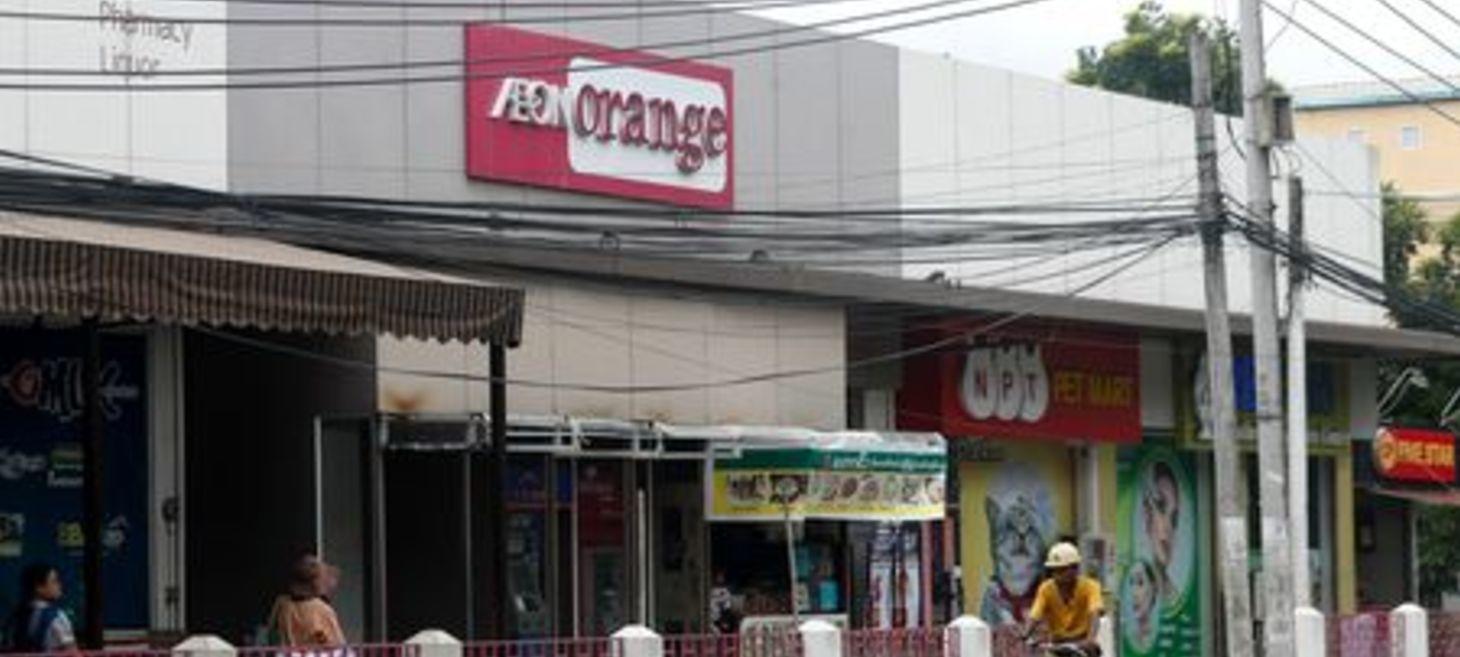
Aeon Employee Returns to Japan after Detention in Myanmar - Nippon.com
Hiroshi Kasamatsu, a 53-year-old employee of Aeon Co. and head of the product department at Aeon Orange Co., a joint venture in Myanmar, was detained for over a month by Myanmar's military regime for allegedly selling rice above government-set price levels. His release on Wednesday was facilitated by the Japanese Foreign Ministry, among others, following a sentence of one year in prison handed down on the day of his release. The detention stemmed from a pricing issue; the military regime had issued a notice on rice prices on June 24, which Aeon Orange and other local retailers were unaware of until they adjusted their prices on June 27. Aeon has since apologized for any inconvenience caused by their response to the situation.
Foreign Affairs
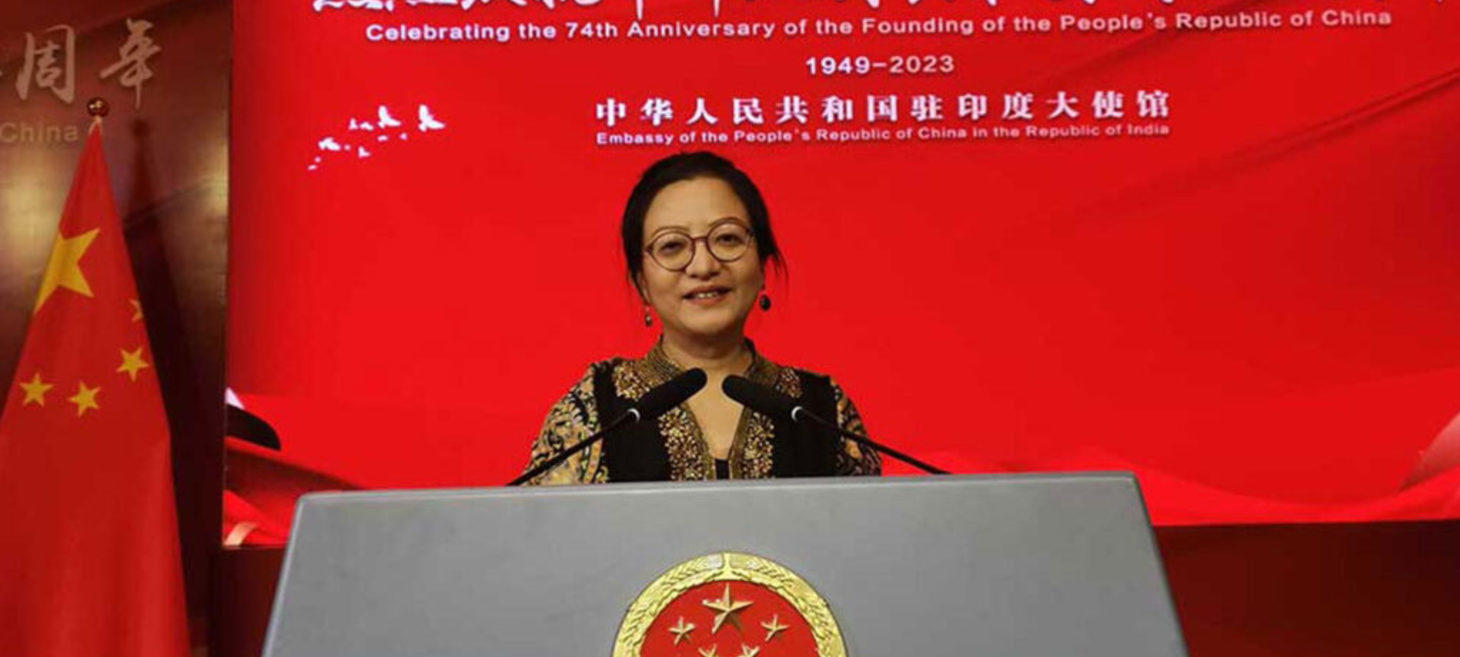
Ma Jia Named as China’s New Ambassador to Myanmar
China's nominee, Ma Jia, has been accepted as the new ambassador to Myanmar by the military regime, succeeding Chen Hai. With a diplomatic career spanning several countries including India, Pakistan, Japan, Singapore, Malaysia, and the UK, the 56-year-old Ma Jia is familiar with Myanmar, having served there during Than Shwe's dictatorship. Her appointment follows discussions between Chinese special envoy Deng Xijun and junta chief Min Aung Hlaing regarding internal peace and border stability. Ma Jia faces the challenging task of facilitating talks between the regime and the Brotherhood Alliance amidst heightened tensions and territorial disputes, including China's interests in Rakhine State. Despite international isolation due to human rights abuses, China continues to support the Min Aung Hlaing regime militarily and diplomatically.
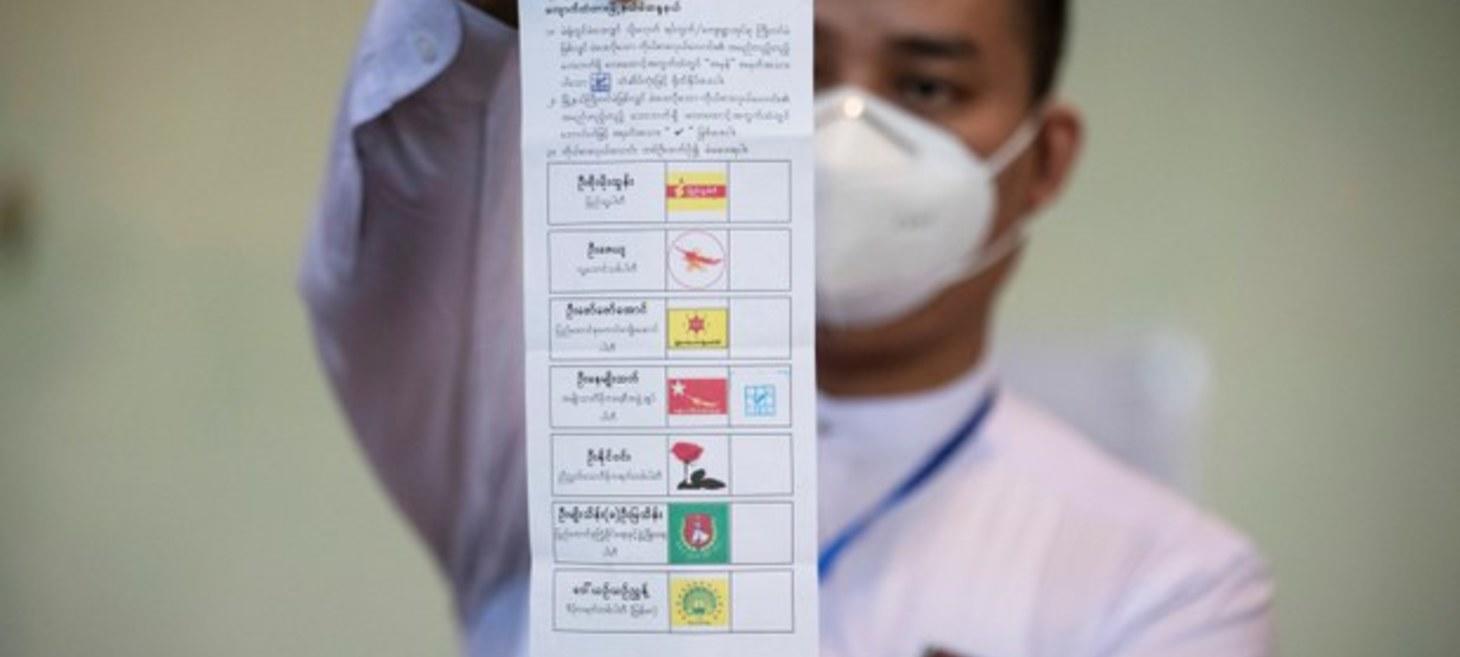
Opponents of Myanmar junta skeptical on any Thai help for census, vote
Critics of Myanmar's military rule have expressed concerns over Thailand's potential involvement in conducting a census in Myanmar, set for October 1-15, as a precursor to an election promised by the junta for next year. Discussions between Thai Ambassador Mongkol Visitstump and Myanmar's election and immigration officials have raised fears that the election will merely legitimize the junta's power, dismissing it as a sham. Since the military coup in early 2021, which ousted the democratically elected government led by Aung San Suu Kyi, the junta has suppressed pro-democracy movements and jailed key political figures, casting doubt on the fairness of any forthcoming elections. The National Unity Government's spokesperson has urged the international community, including Thailand, to prioritize human rights and stability over supporting the junta's plans. Critics argue that the junta lacks the capability to conduct a meaningful census or election, especially given the ongoing conflicts and control insurgents have over significant territories, suggesting that any such efforts could exacerbate the current conflict.
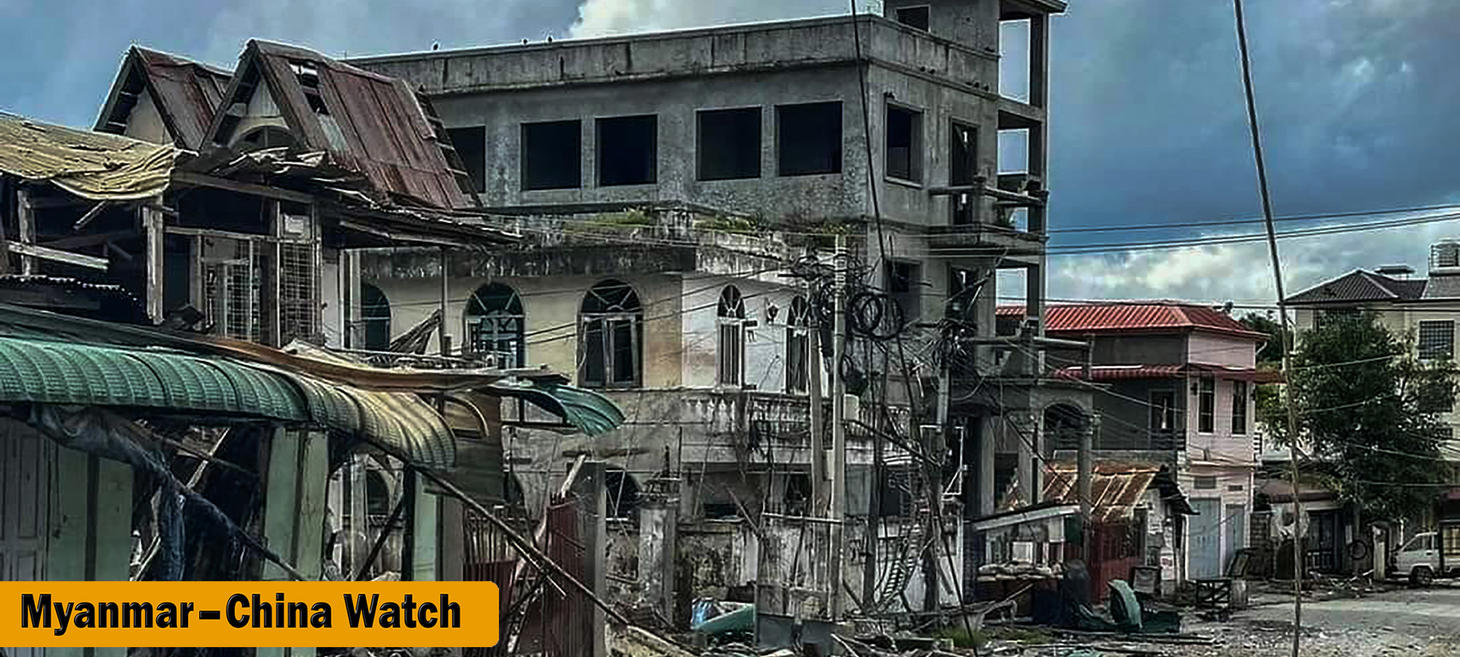
Chinese Embassy Urges Its Citizens in Myanmar’s N. Shan to Leave Conflict Zones
The Chinese Embassy in Myanmar has issued a warning to Chinese nationals in Lashio and other conflict-affected areas of northern Shan State, urging them to relocate to safer locations due to ongoing security risks. This advisory, released through the embassy's WeChat channel, comes in response to the escalating violence following the Brotherhood Alliance's capture of significant territories in northern Shan State, including Lashio. The embassy has emphasized the importance of Chinese citizens strengthening their security measures, moving away from conflict zones, and registering their personal details with the embassy for assistance in emergencies. This situation underscores the broader instability in the region, where the junta's loss of control has led to indiscriminate air and artillery strikes against civilian areas, prompting concerns for the safety of both locals and foreign nationals residing there.
General News
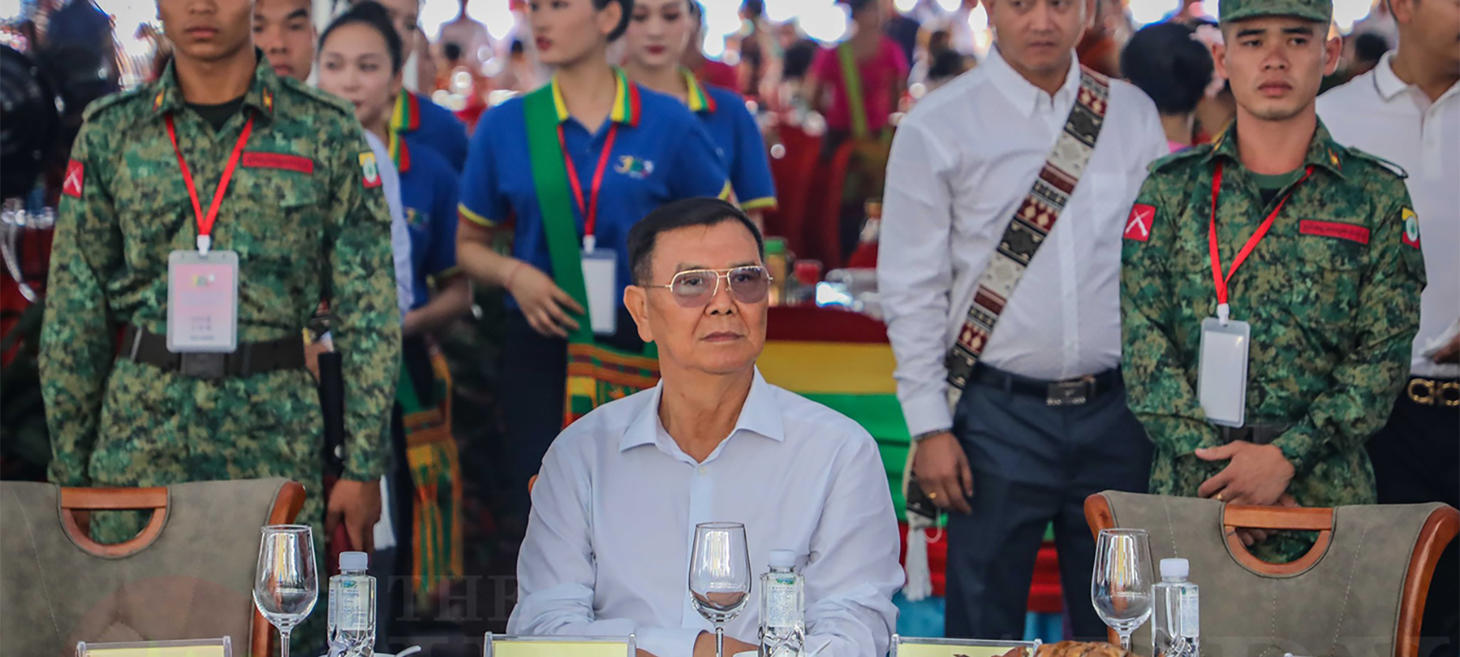
Mongla Army Founder Dies of Lung Cancer
Sai Lin, the founder of the National Democratic Alliance Army (NDAA), also known as the Mongla Group, passed away from lung cancer at the age of 76 in China. Born Sai Leun (Lin Mingxian) on Hainan Island, China, he moved to Myanmar during the Cultural Revolution and joined the Communist Party of Burma. He later became a significant figure in the Mongla region near the Chinese border after leading a mutiny with the CPB in 1989, which resulted in the formation of the NDAA. The group was one of the first to sign a ceasefire with Myanmar's military regime, leading to substantial autonomy and economic growth for the region. Sai Lin's death marks the end of an era for the NDAA, which he led through significant periods of conflict and negotiation in Myanmar's complex ethnic and political landscape.
Humanitarian
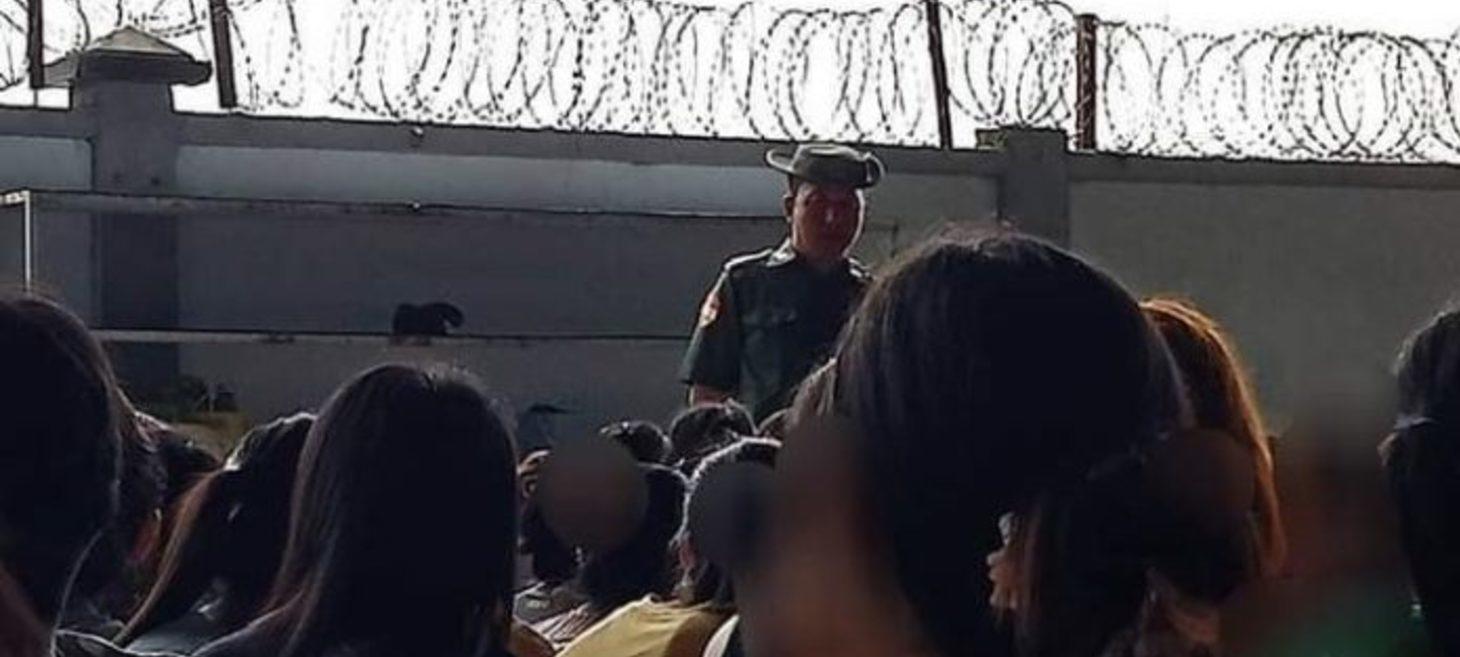
Myanmar factory workers continue to fight for labor rights
In Myanmar, the plight of factory workers, particularly in the garment industry, has deteriorated significantly since the 2021 military coup, with widespread human and labor rights violations reported. Wah Wah, a former employee at a Chinese-owned sports equipment factory in Yangon, was unjustly fired after reporting sexual harassment, highlighting the lack of effective grievance mechanisms and protection for workers. The situation escalated when military intervention was summoned to suppress worker demands, leading to physical assaults. Post-coup, many factories, predominantly Chinese-owned, have been complicit in abuses, aligning closely with the military. Workers face forced overtime, delayed wages, and unsafe working conditions, often resulting in severe injuries with no subsequent support. The military regime has also targeted labor unions and activists, declaring many organizations illegal and arresting leaders, which has driven the labor movement underground. Despite earning meager wages, workers are subjected to harsh penalties for not meeting production targets, including physical and verbal abuse. The International Labor Organization (ILO) and other international bodies have noted these abuses, but the situation remains dire, with calls for international sanctions against the regime to highlight and hopefully alleviate the workers' suffering.
Military
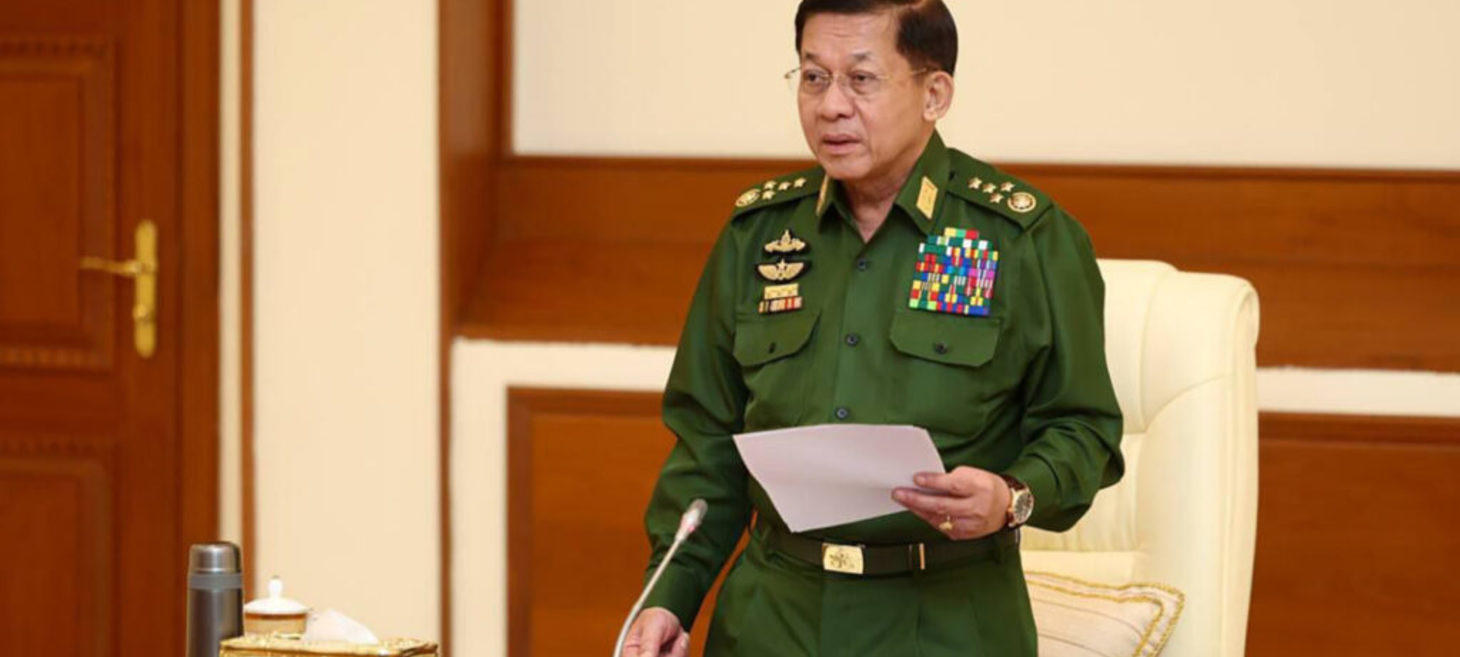
The Megalomaniacal Mendacity of Myanmar Junta Boss Min Aung Hlaing
Myanmar's dictator, Min Aung Hlaing, despite appearing out of touch as his military regime faces significant losses to resistance forces, demonstrated awareness of the dire situation in a recent address. He acknowledged the fall of Lashio and the North East Command to the MNDAA, highlighting the technological advancements of the Brotherhood Alliance, including drone usage, and admitted to the establishment of arms factories along the China border. His speech revealed a mix of desperation and delusion, blaming external influences and internal divisions for the regime's struggles, while also attempting to rally support by appealing to national unity and security concerns. The address underscored the regime's weakening grip on power amid escalating conflict and territorial losses, suggesting a potential shift towards more conventional warfare and raising questions about the sustainability of the military's control.

Myanmar military denies junta chief Min Aung Hlaing detained by generals
Rumors circulating on social media claiming that Myanmar's junta chief, Min Aung Hlaing, had been detained by top generals in a new coup attempt were dismissed as "propaganda" by the military, which accused the rumor-spreaders of being "traitors." This comes amid growing public criticism of Min Aung Hlaing due to territorial losses to ethnic minority armed groups and others opposing the 2021 coup. The military's statement emphasized the unity of the head of state and authorities in fulfilling national responsibilities. Concurrently, Chinese Foreign Minister Wang Yi is scheduled to visit Myanmar for discussions aimed at enhancing bilateral cooperation, highlighting China's significant role as both an ally and arms supplier to the junta, despite also maintaining relations with ethnic armed groups near its border. Recent territorial gains by an alliance of these groups in northern Shan state, including capturing a major military command, have intensified scrutiny on Min Aung Hlaing, who accused unnamed "foreign" sources of supplying weapons to his opponents.
Protests
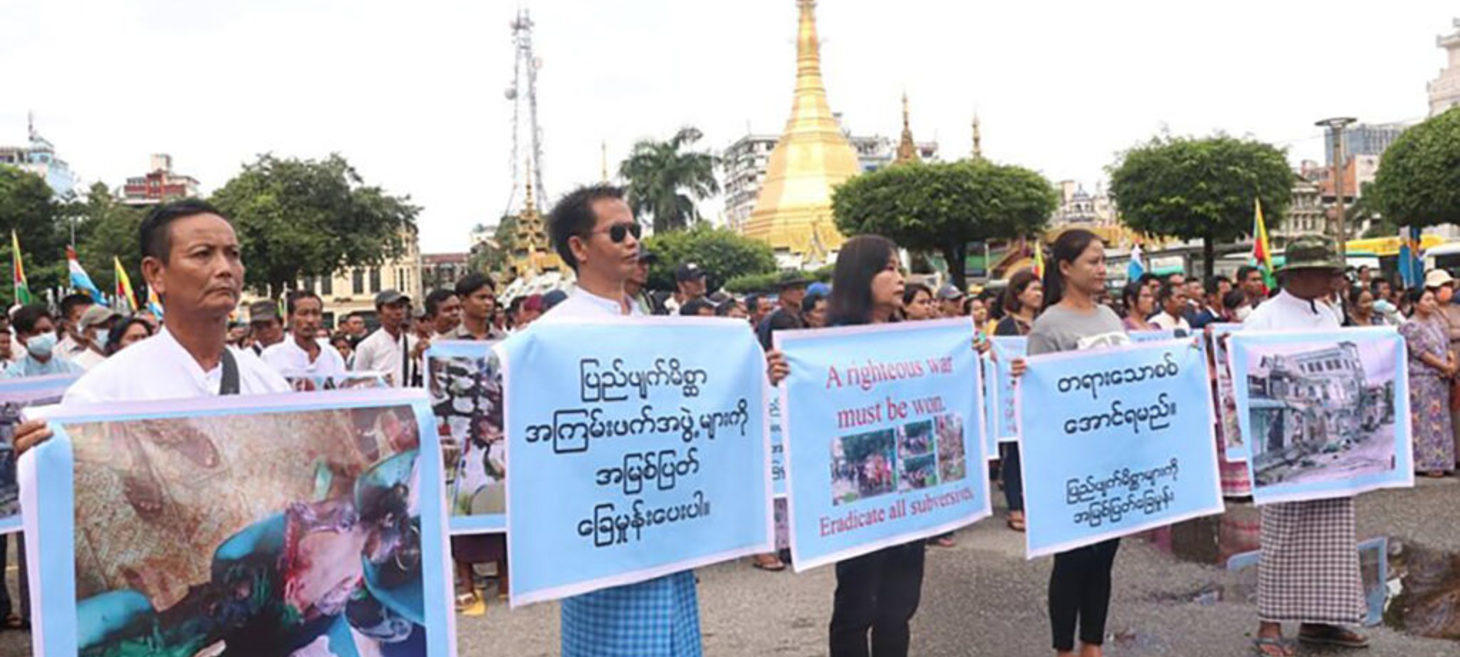
Myanmar Junta Amplifies Nationalist, Anti-China Sentiment After Loss of Northeastern Command
In response to the significant loss of the Northeastern Command in northern Shan State to the Brotherhood Alliance's Myanmar National Democratic Alliance Army (MNDAA), Myanmar's military regime, led by Min Aung Hlaing, has escalated nationalist rhetoric and anti-China sentiments. Hlaing accused foreign powers of prolonging the conflict by supporting armed groups, indirectly implicating China without directly naming it. This accusation follows the MNDAA's historic capture of the Northeastern Command headquarters in Lashio. Pro-military rallies, orchestrated with the junta's approval, have taken place across Myanmar, including in Yangon, Naypyitaw, and Hpa-an, protesting against the Brotherhood Alliance and displaying symbols of nationalism. Despite these efforts, public interest in the rallies and the narrative of foreign invasion remains low. Amidst these developments, the Chinese Embassy advised its nationals in conflict-affected areas to evacuate, highlighting the tense situation.
Telecommunications
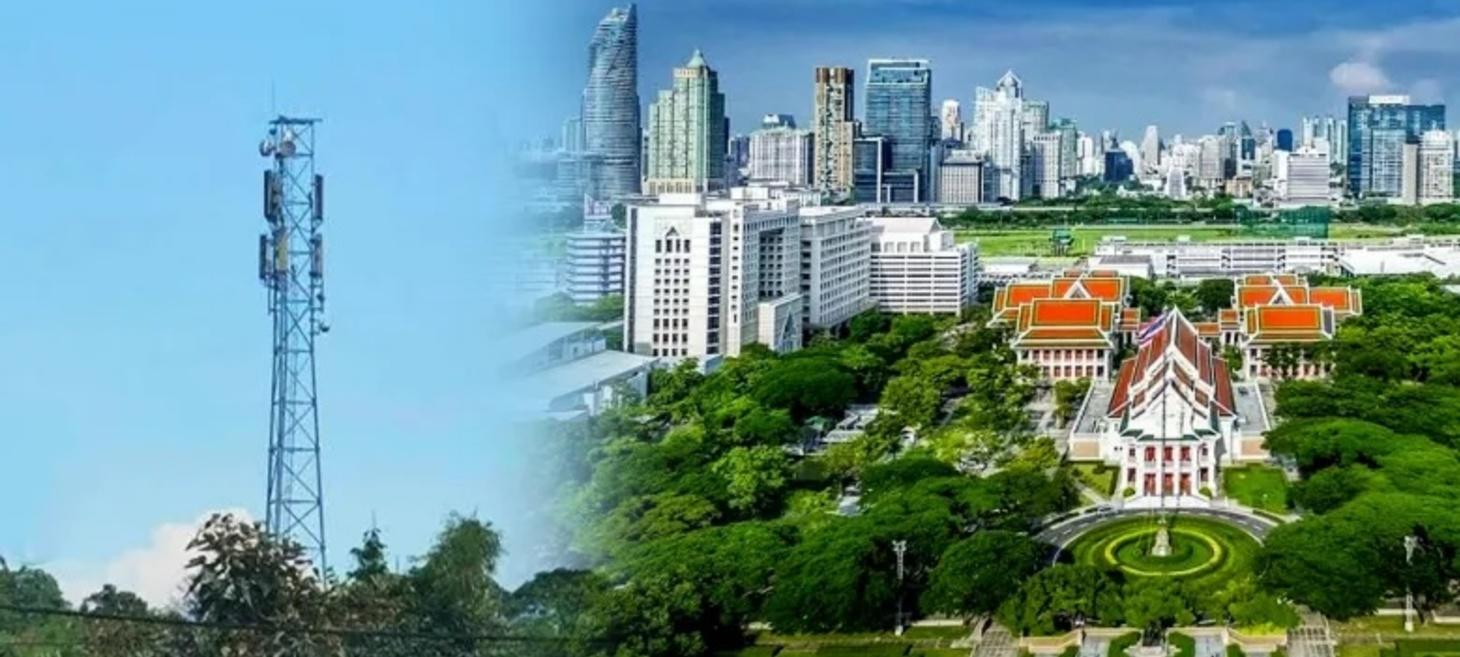
Phone, internet outages in Kachin State hamper financial support for students abroad
Since July 21, 2024, Kachin State in Myanmar has been experiencing significant phone and internet outages, severely impacting the ability of families to support their children studying abroad financially. The disruptions have halted all mobile banking services and online money transfer systems, leaving students facing potential financial crises, including the inability to pay school fees and meet daily living expenses such as rent and food. Some students are considering dropping out or seeking part-time jobs and scholarships to manage their situation. The outages, which have been partially restored in some areas of Myitkyina City and Waingmaw Town, are attributed to damaged cable lines in the neighboring Sagaing Region, with repairs completed in some downtown areas. However, the broader connectivity blackout continues, complicating the financial and communication challenges for students and their families.